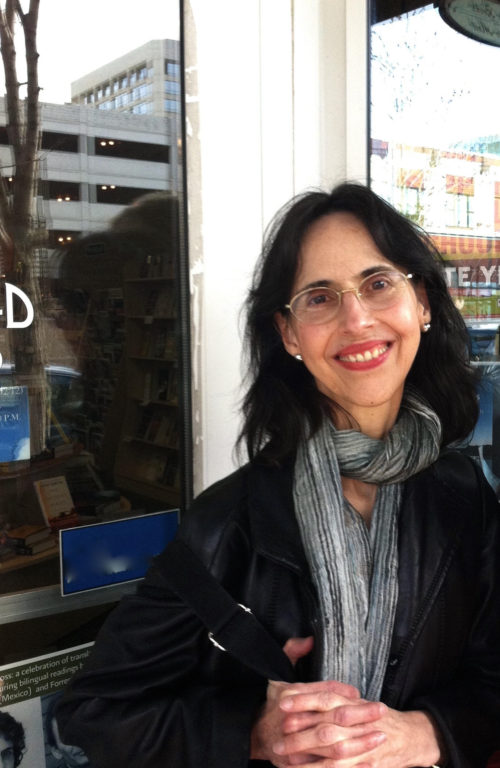(Observations)
She can’t ask any longer
to be loved. But who can
ask to be loved?
Nor that someone sit beside her to wait with her.
Life slips away
with all the gestures,
with all the memories, with all its core
strength, its beauty,
which have foundered with her. Years ago
she stopped speaking.
How does she think? How does she link the diffuse, wobbly
trajectories that lead here? And you?—she asked me once—
How do you come
to know?
(Observaciones)
Ya no puede pedir
que la quieran. ¿Pero quién puede
pedir que lo quieran?
Ni que se sienten a su lado a esperarla.
La vida se escabulle
con todos los gestos,
con todos los recuerdos, con toda la fuerza
medular, la belleza,
que se han hundido con ella. Hace años
que no habla.
¿Cómo piensa? ¿Como liga los difusos, desiguales
trayectos de estar ahí? ¿Y tú? —me preguntó una vez—
¿Cómo le haces
para saber?
*
(Alzheimer’s. Follow-up)
Who is the President of this country?
—Well, it depends; for some
it’s one person; for others it is another.
What is this called?
— I don’t know, doctor, because I don’t use
that; only you do.
How many children do you have?
— Quite a few.
What did you used to do?
—Now you’re going to ask me
to draw a clock.
Did you like to dance?
— Yes, of course, of course I danced.
And did you ever travel?
—Yes, naturally.
Where to?
— Well, to the same place everyone went.
(Alzheimer. Seguimiento)
¿Quién es el presidente de este país?
—Pues depende para unos
es uno; para otros es otro.
¿Cómo se llama esto?
—No sé, doctor, porque yo no uso
eso; sólo usted.
¿Cuántos hijos tiene?
—Muchos.
¿A qué se dedicaba usted antes?
—Ahora me va a pedir
que dibuje un reloj.
¿Usted bailaba?
—Sí, claro, por supuesto que bailaba.
¿Y viajó alguna vez?
—Sí, claro.
¿A donde?
—Pues a donde iban todos.






